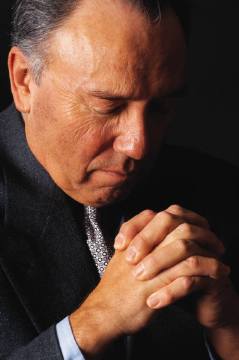Jesus Calms the Storm
That day when evening came, he said to his disciples, “Let us go over to the other side.” Leaving the crowd behind, they took him along, just as he was, in the boat. There were also other boats with him. A furious squall came up, and the waves broke over the boat, so that it was nearly swamped. Jesus was in the stern, sleeping on a cushion. The disciples woke him and said to him, “Teacher, don’t you care if we drown?” He got up, rebuked the wind and said to the waves, “Quiet! Be still!” Then the wind died down and it was completely calm. He said to his disciples, “Why are you so afraid? Do you still have no faith?” They were terrified and asked each other, “Who is this? Even the wind and the waves obey him!” (Mark 4:35-41, NIV)
I have always loved the way the writers of the New Testament juxtaposed the humanity of Christ with His Sovereign nature. Exhausted from a day of teaching, healing, traveling sandy shores and rocky pathways when He gets to the end of the day Jesus collapses on the cushion on the boat and falls fast asleep. So deep is His sleep in the gently rocking boat with the oars’ rhythmic motion through the water that He simply does not notice when the boat begins to rock and roll.
Suddenly the storm clouds come up and funnel down directly onto the little boat that carries Jesus and His disciples to the other side. Waves break over the sides and water begins to fill the boat.
And Jesus sleeps.
We know that Peter, Andrew, James and John were seasoned fishermen who had seen this before but what about the rest of the disciples? I wonder if Matthew the tax collector had ever been in a boat in a storm? What about Thaddeus, or Nathaniel, James or Judas?
As the boat fills with water you can hear the fishermen asking, “How many buckets on the boat for bailing water? None? Well, use your hands cupped together and bail as fast as you can! The water is supposed to be outside of the boat. Once it gets inside it is all over. We need all hands bailing water out of the boat.
And Jesus sleeps.
Hey! Where is Jesus!? He’s asleep at the stern of the boat! In this storm?! Wake Him up, now!
The storm was bad enough that all of them had fallen into terrified, abject fear: “Teacher, don’t you care if we drown?” was the cry of desperation. To this point the story is about men in a boat caught in a storm desperate to survive. Forget about getting to the other side. This is a battle for living to see another day.
And then they wake Jesus…and everything changes.
We move from a simple story of survival to an event of overwhelming, commanding power when Jesus speaks: “Quiet. Be still.” and the rain stops, the clouds break apart, the wind dies, the waves collapse and the sun breaks through and, Mark tells us, it became completely calm.
Imagine the twelve disciples standing in the boat, water up to their knees, the sides just above the water’s surface, drenched with robes dripping, hair strung over their eyes, panting, hands at their sides…mouths wide open…speechless.
This story confronts us with the question of belief in the way that Mark seamlessly reports on both the humanity and the divinity of Christ. Exhausted, Jesus collapses in His humanity to sleep…just like we do when we are tired to the bone…and, when He rises, He calmly issues a few brief commands and the storm evaporates and disappears. No one does that except God Himself. No other explanation needed. No expansion of the story required. Just the facts. Jesus speaks and all nature obeys.
“Why are you so afraid? Do you still have no faith?” Jesus asks.
 Again, no other explanation needed. Just the facts. Jesus knew He was here to accomplish God’s purpose which was not to drown in a storm in the middle of a lake. When you know that there is a greater purpose that drives you forward you don’t sweat the small stuff. Mark tells us that when they realized who Jesus was, they were terrified.
Again, no other explanation needed. Just the facts. Jesus knew He was here to accomplish God’s purpose which was not to drown in a storm in the middle of a lake. When you know that there is a greater purpose that drives you forward you don’t sweat the small stuff. Mark tells us that when they realized who Jesus was, they were terrified.
Peter says it well in 2 Peter 1:14-18 – “For we did not follow cleverly devised stories when we told you about the coming of our Lord Jesus Christ in power, but we were eyewitnesses of his majesty.”
The Storms of Life
I believe there is a reason why this one story fills early Christian art and symbolism. There is something about being in a boat in a storm that resonates within our humanity. And there is something about the words of Jesus that takes our storms and brings us peace.
In fact, one unnoticed detail in Mark’s account is the other boats that were with Him. Why include that simple detail? There were others…
…were they in the storm too? Or were they watching the drama unfold from a distance.
…what was their reaction when they saw the impact of Jesus’ words as the storm stopped and it became completely calm.
…who were they? How many boats were there? Did they make it to the other side, too?
Nothing.
Mark just mentions that there were other boats traveling with them.
These are the details that betray an eyewitness account; but, they also open the door to powerful metaphors for talking about matters of faith when times are tough. Some interesting questions emerge that would be interesting to ponder….
Which ones come to your mind?





 Again, no other explanation needed. Just the facts. Jesus knew He was here to accomplish God’s purpose which was not to drown in a storm in the middle of a lake. When you know that there is a greater purpose that drives you forward you don’t sweat the small stuff. Mark tells us that when they realized who Jesus was, they were terrified.
Again, no other explanation needed. Just the facts. Jesus knew He was here to accomplish God’s purpose which was not to drown in a storm in the middle of a lake. When you know that there is a greater purpose that drives you forward you don’t sweat the small stuff. Mark tells us that when they realized who Jesus was, they were terrified. A new tier has been added to my menus at the top of the screen to help me organize the blogs I’ve written over the last year. Most of it si pretty self-explanatory except for one of the titles:
A new tier has been added to my menus at the top of the screen to help me organize the blogs I’ve written over the last year. Most of it si pretty self-explanatory except for one of the titles:  One of the real family tragedies of our culture today is the loss of community.
One of the real family tragedies of our culture today is the loss of community.  The concept of
The concept of  Our histories are important in family counseling. They highlight encounter points that have shaped who we are today, contributing to our present beliefs and expectations.
Our histories are important in family counseling. They highlight encounter points that have shaped who we are today, contributing to our present beliefs and expectations.
